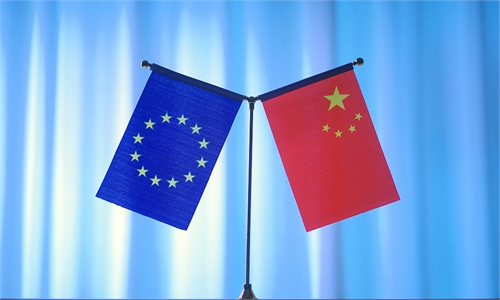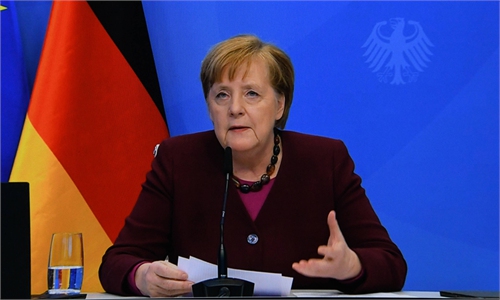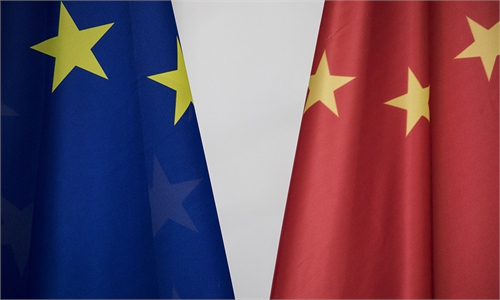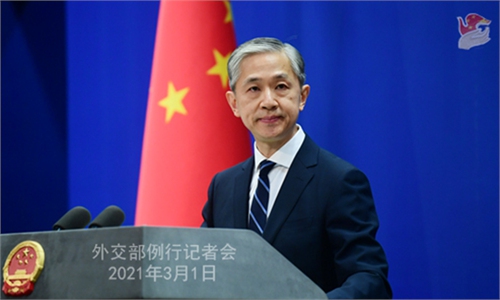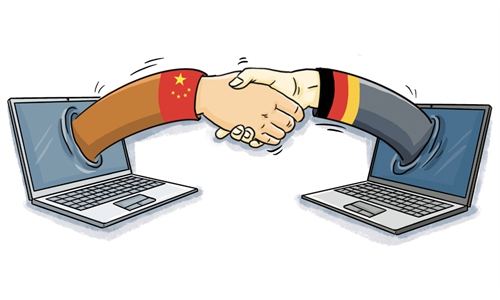China-Germany govt consultations set ties straight ahead of Berlin power reshuffle, stabilize China-EU relations
Secure bilateral ties before Berlin power reshuffle
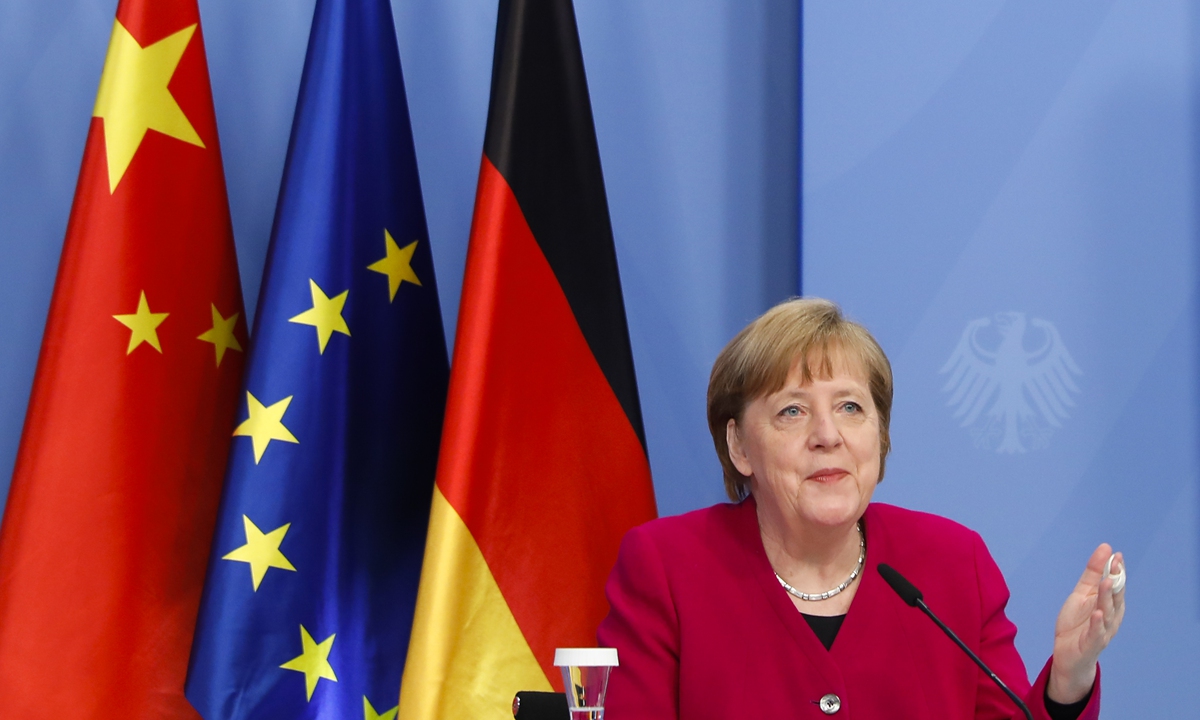
German Chancellor Angela Merkel attends virtual talks as part of the Sixth German-Chinese Government Consultations on Wednesday in Berlin, Germany. Chinese Premier Li Keqiang and Merkel co-chaired the sixth round of intergovernmental consultations via video link. Photo: VCG
China and Germany held intergovernmental consultations via video link on Wednesday with 25 ministers of the two governments participating, which shows the high level and great potential of cooperation between the two countries, and that China-Germany ties play the role of stabilizer for China-EU relations, said experts.
Chinese analysts said this meeting shows pragmatic and rational mindsets of the two sides and will set a guidance for the future development of bilateral ties since Germany will have a political power transition later this year.
Chinese Premier Li Keqiang and German Chancellor Angela Merkel co-chaired the sixth round of intergovernmental consultations via video link on Wednesday. Starting from 2011, the intergovernmental consultation between the two countries was usually held once in two years, but it was canceled last year because of the COVID-19 outbreak.
Li said in his opening remarks that China and Germany should set an example of opening-up, mutual benefit and win-win cooperation, because the current international situation is experiencing a profound change, the COVID-19 pandemic is far from over, and protectionism exists.
The Chinese premier stressed that China and Germany have different views on some issues, but as long as each respects the other's core interests and major concerns, communicate based on equality and non-interference principles, and reduce divergences and focus on cooperation, the two sides would be able to create good conditions for further dialogue and cooperation.
Merkel said that thanks to the intergovernmental consultation mechanism, cooperation between both sides on diplomacy, trade, agriculture, food, security, sustainable development and climate have been greatly deepened and broadened, and she hopes the mechanism could be continued.
China remains the biggest trading partner of Germany for the fifth consecutive year in 2020. According to preliminary results, goods worth 212.1 billion euros ($258 billion) were traded between Germany and China in 2020.
Premier Li and Merkel's meeting stressed cooperation to deal with shared challenges and will also set an example for Merkel's successor in strengthening communication and sticking to the pattern of practical cooperation rather than being disturbed by ideological differences or human rights issues, Dong Yifan, a research fellow with the Institute of European Studies at the China Institutes of Contemporary International Relations, told the Global Times on Wednesday..
Dong noted that considering the pressure from the US, there may be some friction and difficulties for China-EU ties, "but in the long run, those stuck in ideological mindsets will be forced to reconsider China-EU ties," Dong said.
Experts also showed optimism and confidence in China-Germany cooperation despite there could be some impacts in the future, as they believe German leaders, or Merkel's successors, as well as the business elites, have seen the great potential of China-Germany, or China-EU cooperation, so they need to ensure healthy ties won't be interrupted by any third party or internal conservative forces.
Feng Xingliang, chief representative of NRW.Global Business, the trade and investment agency of the German State of North Rhine-Westphalia in Beijing, told the Global Times that potential for cooperation between China and Germany in the post-epidemic era will be further released. Both parties have a huge potential for cooperation in the sectors like biomedicine, information communication, electronic equipment, renewable energy, artificial intelligence, and environmental protection.
"Electric vehicles can be a new spotlight for further China-Germany cooperation," Feng said, adding that there are currently no native mature battery manufacturers in Germany, and Chinese companies can actively explore.
Merkel said the EU-China Comprehensive Agreement on Investment (CAI) is transparent and equal, and will provide more guarantees.
Wang Yiwei, director of the Institute of European studies at the Renmin University of China, told the Global Times on Wednesday that the CAI would be one the most important political heritages of Merkel, who is set to step down in September.
Despite uncertainties within the EU about the agreement, the CAI will not fall apart because the business community will be supportive, experts said.
"China and Germany or Europe have the same determined pursuit on green mobility and reduction of carbon emissions ahead of achieving carbon neutrality," Wang said. "Without cooperation from China which could offer a huge market and rich experience, it's impossible for the EU to realize its ambitious goal to curb climate change."



